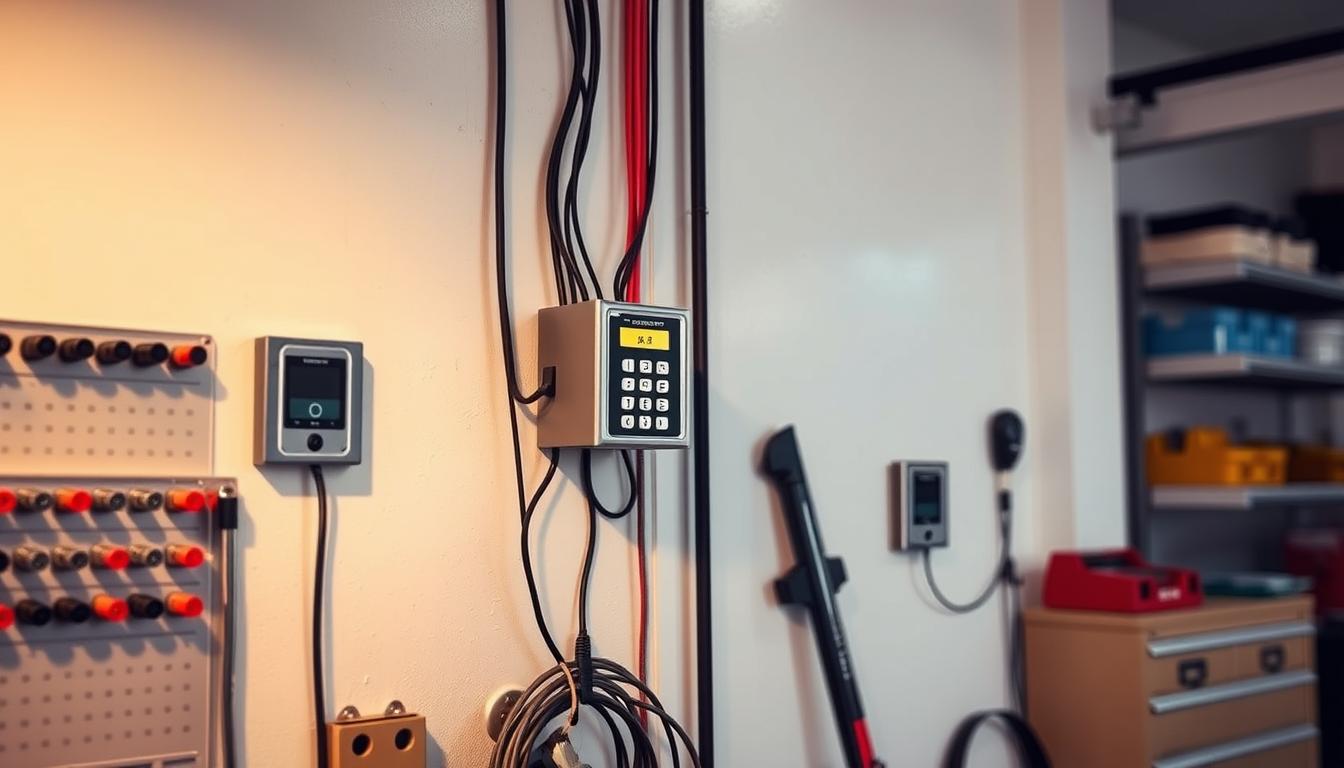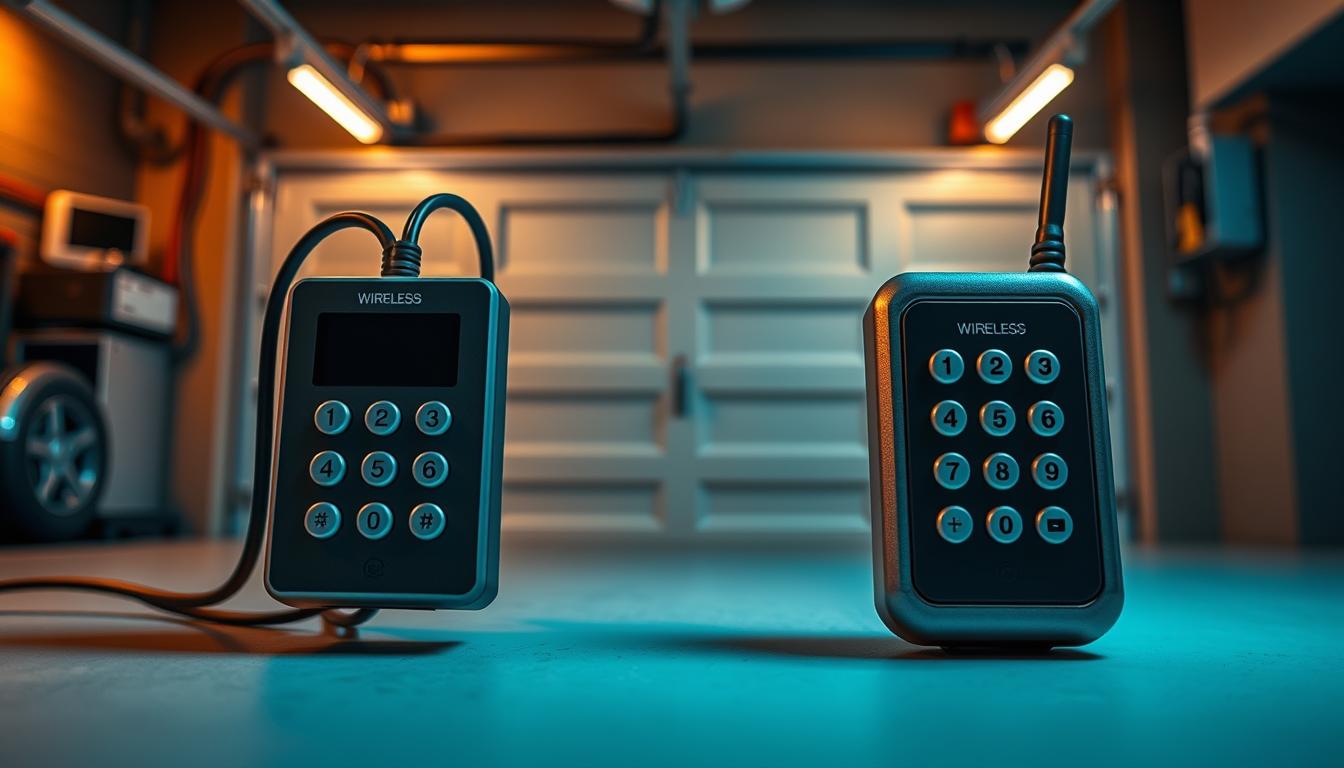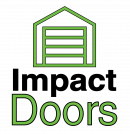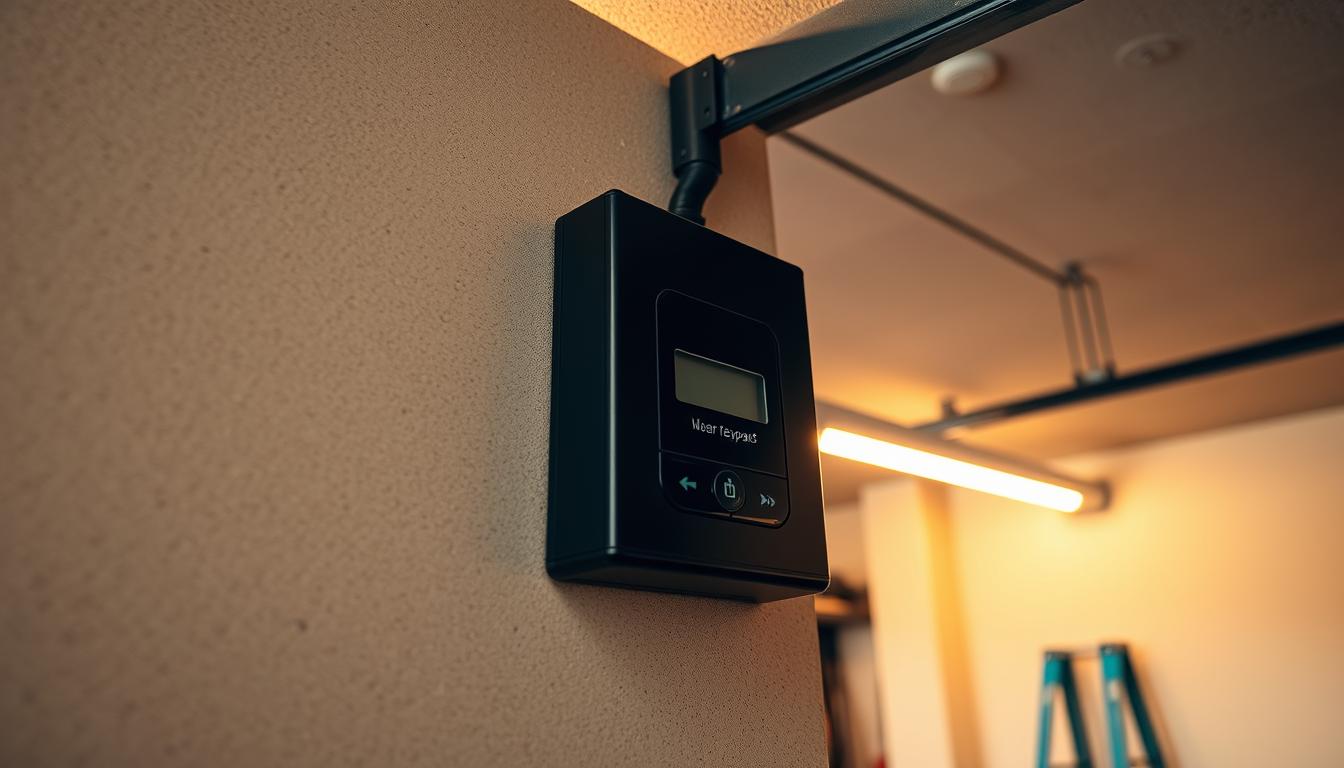Ever dashed out the door only to realise your remote’s still on the kitchen bench? You’re not alone. That’s where external entry systems shine – they’re the trusty backup when life gets chaotic. But with two main styles available, how do you pick between hardwired and wireless models, such as wired wireless keypads and wireless garage door options?
Hardwired units connect directly to your opener via cables, offering rock-solid reliability. Wireless versions use radio signals and batteries, giving flexibility for retrofits. Both keep your property secure, but each suits different needs. Maybe you’re after a permanent solution that won’t quit during storms? Or perhaps you need something you can shift as your setup changes? Wired keypads offer constant power, while a wireless keypad provides ease of installation.
When deciding between wired and wireless keypads, it’s also helpful to understand how garage door lock work, as the locking mechanism you have can influence the type of keypad that offers the best security and compatibility.
We’ll break down installation quirks, maintenance tips, and cost differences specific to Aussie homes. Whether you’re upgrading an older system or starting fresh, understanding these options helps you invest wisely. Ready to never get locked out again?
Key Takeaways
- Hardwired models provide constant power through physical connections
- Wireless versions offer easier installation and relocation options
- Battery life impacts maintenance for wireless units
- Weather resistance varies between permanent and portable setups
- Compatibility checks prevent headaches with existing openers
Overview of Garage Door Keypads in Australia
Lost remotes are a hassle; modern access solutions eliminate this frustration entirely. These devices combine security with simplicity, letting you control who enters your space without physical keys. Over 40% of Australian households now use some form of coded entry system, according to recent home safety surveys.
Why Keypads Strengthen Your Property’s Defence
Think of these garage door keypads as digital gatekeepers. They use encrypted codes that change each time you enter them – like a constantly evolving secret handshake. This rolling code technology stops hackers dead in their tracks. Need to give the dog walker temporary access? Just share a unique PIN instead of risking your main code.
Quick Comparison: Fixed vs Portable Models
Choosing between wired wireless keypads depends on your needs. Fixed models connect directly to your opener’s wiring, while portable wireless keypads run on batteries. Here’s how they stack up:
| Feature | Wired | Wireless |
|---|---|---|
| Installation | Requires electrician | DIY in minutes |
| Power Source | Direct wiring | AA batteries (12-24mo life) |
| Security Level | Military-grade encryption | Advanced frequency hopping |
| Ideal For | New builds | Renters/retrofits |
Want more details? Our comparison guide breaks down weather resistance and signal ranges for Aussie conditions. Remember – both options deter intruders effectively when installed correctly.
Is a Garage Door Keypad Wired: In-Depth Look at Wired Systems
Ever wondered why some homes never face keypad failures during storms? Hardwired models thrive where others falter. These units form a physical bond with your garage door opener, creating an unbreakable chain of command between your fingers and the mechanism.

Getting It Right: Setup Essentials
Proper setup begins with routing cables through walls or conduits. While DIY enthusiasts might attempt this, professional installation ensures correct wiring connections and avoids safety hazards. Electricians typically:
- Map optimal pathways for concealed cables
- Test voltage compatibility with your opener
- Secure weatherproof housing for outdoor units
| Aspect | DIY Approach | Professional Service |
|---|---|---|
| Time Required | 4-6 hours | 90 minutes |
| Tools Needed | Drill, wire strippers, voltage tester | Specialised equipment |
| Warranty Impact | Void if errors occur | Full coverage |
Unmatched Consistency in Operation
What happens when storms knock out power? Unlike battery-dependent models, wired keypads often connect to backup systems. Their direct power link means:
- Instant response times (under 1 second)
- Zero signal dropouts from neighbouring devices
- Military-grade encryption that updates hourly
For homes embracing smart home integration, these systems sync seamlessly with security networks. No more wondering if you closed the door – check your app while at the beach!
Exploring the Advantages of Wireless Garage Door Keypads
Picture this: Your new security device arrives, and you’re punching in codes before the delivery driver’s left your driveway. That’s the reality with modern wireless keypads – no cables, no electricians, just instant access control.
Ease of Installation and Flexibility in Placement
Why do these portable units dominate Aussie homes? Their easy installation tops the list. Most models attach to surfaces with screws or adhesive strips, letting you position them at eye level or discreet spots. No drilling through brickwork or threading wires – just sync with your door opener using the manufacturer’s guide.
Got a rental property? Wireless systems let tenants manage access without altering the building. Shift the unit between gates or sheds as your needs evolve. One family even moved theirs three times during renovations without hiccups!
Battery Dependency and Signal Performance
Reliability hinges on two factors: power sources and connection strength. While batteries offer portability, our summers demand vigilance. Lithium cells last longer than alkalics in heat – swap them annually to avoid mid-summer surprises.
| Factor | Impact | Solution |
|---|---|---|
| Extreme Heat | Reduces battery life by 30% | Use lithium batteries |
| Thick Walls | Weakens signals | Position within 15m line-of-sight |
| Multiple Devices | Potential interference | Choose models with frequency-hopping tech |
Modern units combat interference cleverly. Advanced models scan for clear channels 50 times per second, ensuring your late-night pizza delivery isn’t gatecrashed by signal dropouts.
Pros and Cons Comparison for Australian Garage Setups
Ever calculated the true cost of convenience? Let’s crunch numbers for local households. Choosing between permanent and portable access solutions involves balancing immediate expenses against future headaches.

Cost Implications and Long-Term Maintenance
Upfront pricing tells only half the story. Wireless units might set you back $50-$120 initially, while wired versions start at $30. But add installation fees, and the gap narrows quickly.
Is a Garage Door Keypad Wired
Here’s what Brisbane homeowners discovered:
| Expense Type | Wireless | Wired |
|---|---|---|
| Initial Purchase | $50-$120 | $30-$70 |
| Professional Setup | $0-$150 | $75-$150 |
| Yearly Costs | $10 (batteries) | $0 |
Battery replacements seem minor until summer hits. Darwin residents report 30% shorter lifespan in tropical heat. Lithium cells outperform alkalines here, stretching replacement cycles to 18 months.
Convenience Versus Permanent Installation
How often do you rearrange your space? Wireless models let renters shift units between properties effortlessly. One Melbourne family moved theirs three times during renovations without issues. Permanent systems suit owners wanting set-and-forget reliability.
Frequent users appreciate wired consistency – no scrambling for spare AAs during school drop-offs. But weekend warriors? Wireless suffices for Saturday tool retrievals. Consider your climate too: sealed wired units withstand coastal salt better than battery compartments.
Ultimately, your lifestyle dictates the smart choice. High-traffic households lean toward wired durability, while flexible spaces benefit from wireless adaptability. Both options secure property effectively when matched to your needs.
Deciding on the Best Option for Your Garage
Stuck choosing between permanent and portable entry systems? Your daily habits and property type determine which solution fits best. Let’s explore how different needs shape this decision.
Tailoring the Choice for Homeowners and Businesses
Families with kids might prefer control garage door systems that withstand constant use. Wired models handle hundreds of daily entries without fail – perfect for busy households. Business owners often choose these for their tamper-proof design and 24/7 reliability.
Renters or holiday homeowners? Wireless units let you take security with you. One Sydney couple uses theirs across three properties, updating codes remotely via smartphone. Compatibility matters too – check if your garage door opener supports modern encryption before buying.
Balancing Security, Convenience, and Budget
What’s your non-negotiable? Compare these key factors:
| Priority | Wired Choice | Wireless Pick |
|---|---|---|
| Weather Resistance | Withstands cyclones | Needs sheltered placement |
| Access Frequency | Unlimited uses | Battery-dependent |
| Tech Savvy | Professional setup | DIY-friendly |
| Long-Term Costs | Lower over 5+ years | Battery replacements add up |
Coastal residents report wired systems last 3x longer in salty air. But if you’re upgrading an older setup, wireless avoids rewiring costs. Still unsure? Most Aussie suppliers offer free assessments – they’ll check your garage door opener type and suggest compatible models.
Remember, the right system becomes invisible – working smoothly until you need it most. Whether securing tools in a shed or protecting family bikes, match your choice to how you actually use the space.
Conclusion
Your final choice boils down to what matters most – rock-solid consistency or hassle-free adaptability. Wired keypads become part of your home’s nervous system, delivering instant responses that laugh at stormy weather. No battery swaps, no signal hiccups – just reliable access whenever you need it.
Prefer something that moves with your lifestyle? Wireless models stick where you want them, perfect for renters or those who rearrange spaces often. One Gold Coast family even mounts theirs on different gates seasonally – beachside storage in summer, pool gear access in winter.
Some homeowners also consider whether their garage door opener works with Ring, allowing them to integrate security monitoring with their keypad for enhanced convenience and protection.
Costs balance out over time. Permanent installations save money long-term, while portable units avoid upfront electrician fees. Remember lithium batteries if you choose wireless – they handle our harsh summers better than standard alkalines.
Both options beat fumbling with remotes. Whether you prioritise military-grade encryption or DIY simplicity, modern door keypads keep your property secure. Test your preferred model’s limits – how often will you use it? Where’s the best placement? Answer these, and you’ll find the perfect match for your daily rhythm.
Still torn? Most Aussie suppliers offer free consultations. They’ll assess your garage doors and usage patterns, suggesting solutions that fit like a favourite pair of thongs. Your peace of mind deserves that extra attention.
FAQ
Are most garage door keypads in Australia wired or wireless?
Wireless keypads dominate the market due to easy installation, but wired keypads remain popular for commercial properties. Brands like Merlin or B&D offer both options. Your choice depends on needs like reliability versus flexibility, especially when considering how these door keypads offer convenience.
Can I install a wired keypad myself?
Professional installation is recommended for wired systems. They require connecting to your garage door opener’s electrical wiring, which must meet Australian safety standards. Wireless keypad models, like those from Guardian, are simpler for DIY setups, allowing you to take matters into your own hand.
Do wireless keypads work during power outages?
Yes! Battery-powered keypads (e.g., Centurion models) keep working during blackouts. Wired systems rely on mains power, so consider a backup battery for your opener if you choose this option, especially if you prefer a wireless keypad for its convenience.
Which option offers better security against hacking?
Wired keypads have no signals to intercept, making them inherently secure. Modern wireless systems from brands like Hörmann use rolling codes to prevent hacking. Both can be safe if properly maintained, so assess your security needs before deciding between wired and wireless options.
How often do wireless keypad batteries need replacing?
Most last 12–24 months. Cold weather or frequent use may drain them faster. Brands like ATA or Nanolock include low-battery alerts. Always keep spare batteries handy to avoid lockouts with your garage door keypad.
Can I have both wired and wireless entry options?
Absolutely! Hybrid systems from brands like Clopay allow multiple entry methods. This adds redundancy – perfect if you want keypad convenience plus a physical backup key.
Do weather conditions affect wireless keypad performance?
Heavy rain or extreme heat can weaken signals. Opt for weatherproof models like B&D’s Outback series. Placement under eaves or using a signal booster helps maintain reliability.

